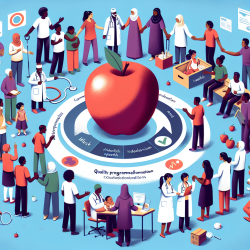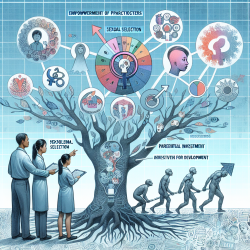The research article "Contingent Relations: Migrant Wellbeing and Economic Development in Rural Manitoba" offers a nuanced exploration of the relationship between migrant wellbeing and economic development. This study provides invaluable insights for practitioners working with migrant populations, particularly those involved in online therapy services like TinyEYE. By understanding these dynamics, practitioners can improve their skills and contribute to the broader discourse on migrant wellbeing.
The Context of Migrant Wellbeing
Migrant wellbeing is a complex and multifaceted concept that encompasses mental, physical, affective, and relational dimensions. The study conducted by Catherine Bryan highlights how these aspects are often overlooked in the context of economic development projects that rely on migrant labour. In rural Manitoba, for instance, Filipino workers recruited through Canada's Temporary Foreign Worker Program have become integral to the local economy, particularly in the tourism and hospitality sectors.
The research reveals that while these workers contribute significantly to economic development, their wellbeing is often compromised by precarious working conditions and limited access to healthcare and social services. This underscores the importance of considering migrant wellbeing as an essential component of economic development strategies.
Implications for Practitioners
Practitioners working with migrant populations can draw several key lessons from this research:
- Cultural Sensitivity: Understanding the cultural backgrounds and migration histories of migrants is crucial for providing effective support. Practitioners should be aware of the cultural narratives that shape migrants' experiences and aspirations.
- Holistic Approach: Addressing migrant wellbeing requires a holistic approach that considers mental health, physical health, social connections, and economic stability. Practitioners should collaborate with other service providers to ensure comprehensive support.
- Advocacy: Practitioners can play a vital role in advocating for policy changes that enhance migrant wellbeing. By highlighting the challenges faced by migrants, practitioners can influence policymakers to consider more inclusive immigration policies.
The Role of Online Therapy Services
Online therapy services like TinyEYE have a unique opportunity to support migrant populations by providing accessible mental health care. The research highlights the importance of addressing mental health issues among migrants, who often experience stress and anxiety due to separation from family and uncertain legal status.
TinyEYE can leverage technology to offer culturally sensitive therapy sessions that accommodate language barriers and time zone differences. By doing so, online therapy services can help mitigate some of the emotional challenges faced by migrants.
Encouraging Further Research
The findings from this study also encourage further research into the intersection of migrant wellbeing and economic development. Researchers can explore how different immigration policies impact migrant wellbeing across various regions and sectors. Additionally, there is a need for longitudinal studies that track changes in migrant wellbeing over time as they transition from temporary to permanent residency.
This ongoing research will provide valuable insights for practitioners and policymakers alike, helping to create more inclusive and supportive environments for migrants.
Conclusion
The research article "Contingent Relations: Migrant Wellbeing and Economic Development in Rural Manitoba" offers critical insights into the challenges faced by migrants in rural economies. For practitioners working with migrant populations, this study provides a framework for understanding the complex interplay between economic development and migrant wellbeing. By implementing these insights into practice, practitioners can enhance their skills and contribute to improving the lives of migrants.










